The essential guide to servicing your caravan
It may seem routine to have the tow vehicle serviced, but are you one of those caravanners that don’t book your van in for a regular check-up? Do you do it yourself? Do you do it at all? Read on,…


Servicing your caravan may seem like an afterthought. Despite not having an engine, a caravan or camper still requires regular maintenance. After all, it is expected to perform in a harsh environment as it tracks along in your wake. The dust and debris from the track can infiltrate the bearings and joints. The endless vibrations can wreak havoc to plumbing for water and gas. Electrical and waterproofing issues that may arise along the way. In fact, without regular maintenance, you can guarantee you will have to deal with at least one of these issues on your next holiday.
To find out more about servicing your caravan, we spoke to a service expert. Marlon Barrie is the service centre manager at Caravan Fix on the Sunshine Coast, to find out what a service schedule should include and how much of it you can do yourself depending on your mechanical skills. You may need to be honest with yourself and your abilities first.
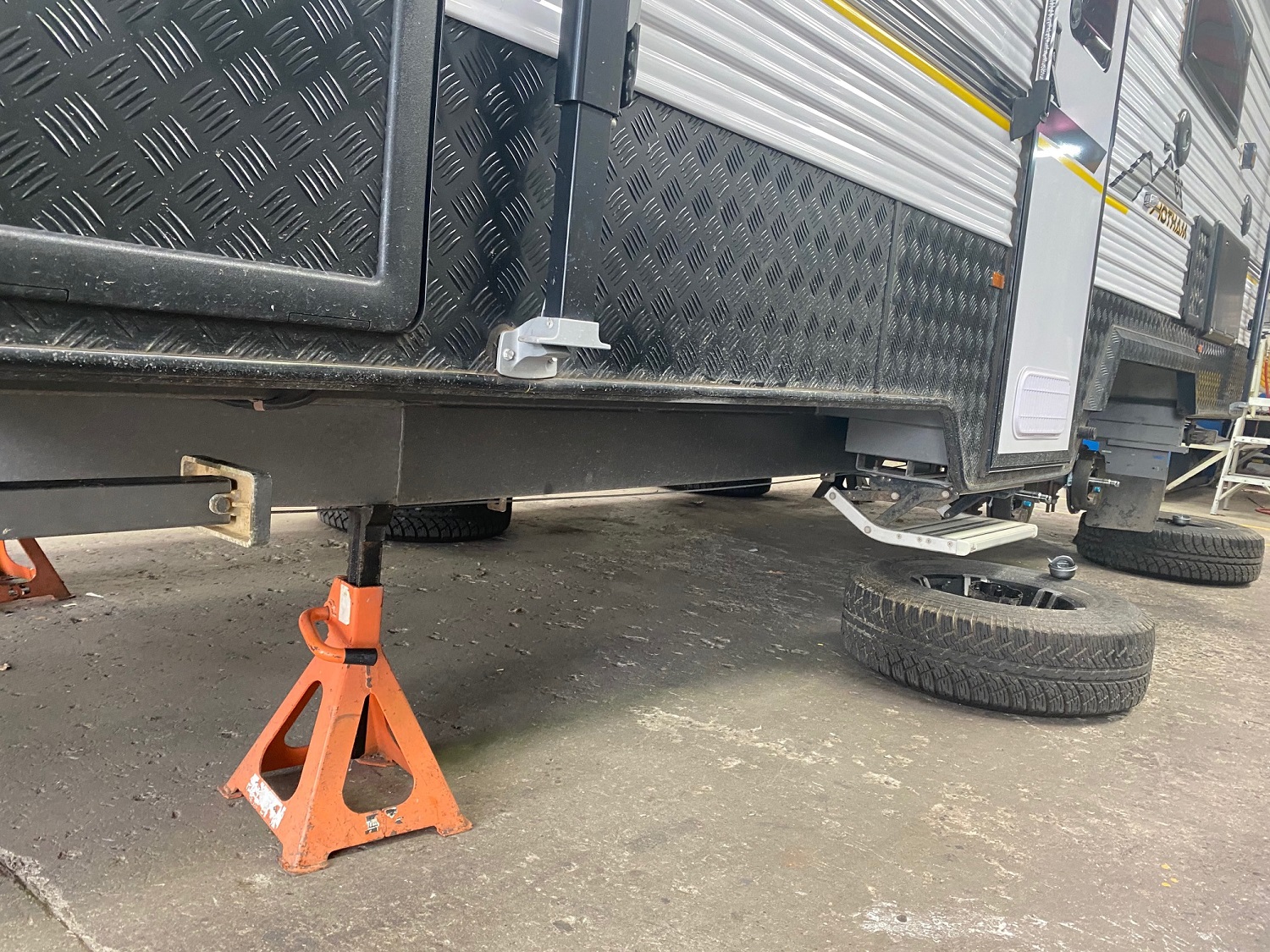
Essential:
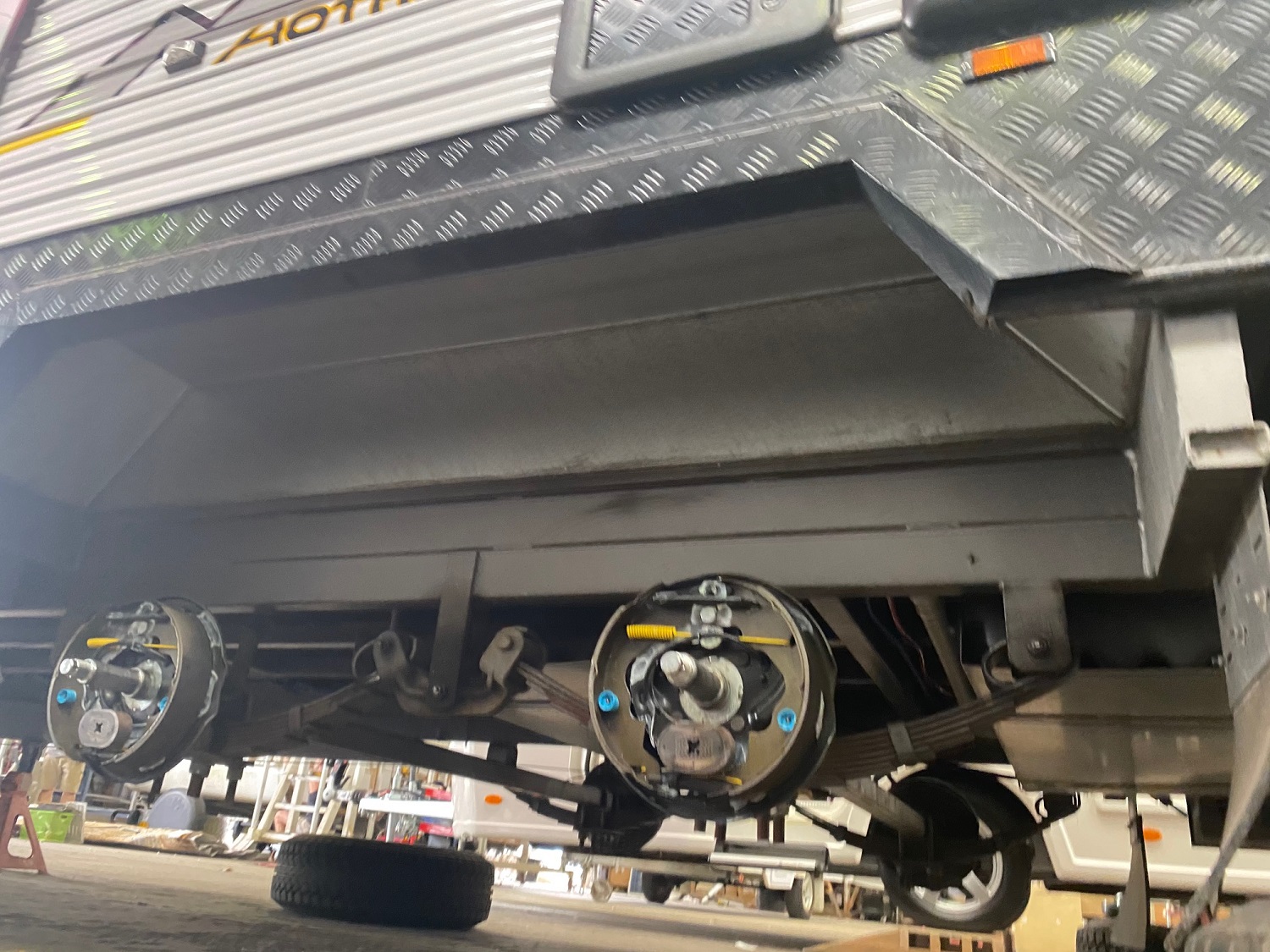
Regular and Routine
If an RV is travelling very little, there are things to still consider. For example, there is always weight present on the bearings, axles and suspension. Plus, if these components are not moving, grease will not be moving freely within them. Remember, if your van is not stored undercover, the seals have been subject to the harsh environment. These are all good reasons to keep your service routine regular.
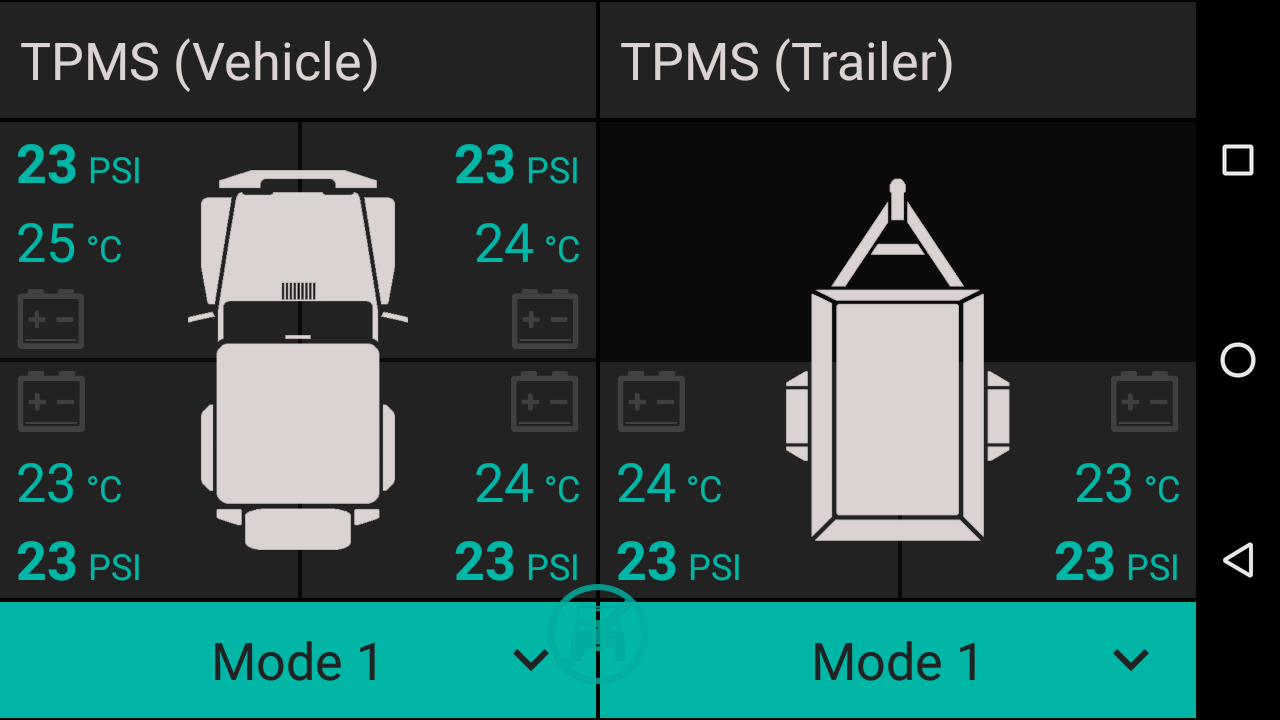
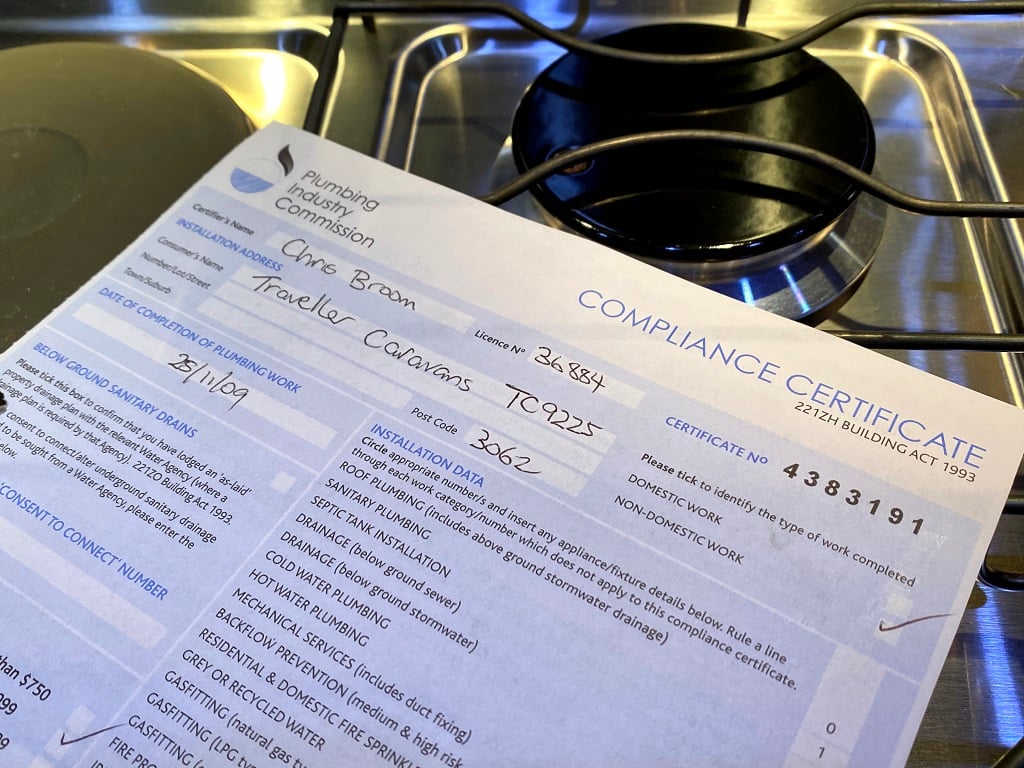

We may identify open seals and advise customers of the issues that need attention. Some people believe they can just go over the areas with silicone, and this will fix all their sealant issues. We have had customers try this, only to come back to us wanting an estimate to repair their internal ply further down the track. It is at this point they wish they took our recommendation to professionally re-seal their van before the problem worsened. Some of these repair jobs end up costing big $$$$.

We do manufacturer warranty repairs for all the major and not-so-major brands. However, this has become an issue for some customers when we lodge their claim only to be advised by the manufacturer they can’t warrant their van as they have no service history. So, the moral of the story? While your van is under warranty and even beyond, it is very important to keep up with regular servicing and maintenance. Some manufacturers may consider a claim even outside the warranty period, depending on the issue. You will have a much stronger case if you have evidence you have maintained your van well. Depending on the issue, some insurance companies may ask to see service history. It’s all about protecting your asset!
Under-inflation, over inflation and out of date. If you have your van professionally serviced, don’t rotate tyres yourself. It does not help your mechanic to identify potential suspension/wheel alignment issues when tyres have been rotated. Always inflate your tyres to what the manufacturer has stamped on the VIN plate. If you do this and find the van is very bouncy, the pressure can be adjusted slightly so towing it is comfortable. Did you know your tyres have an age limit? All tyres will have a date on the placard, as well as the tyre sidewall. If a tyre is more than five years old and has plenty of tread left, it is still roadworthy, although it may not be safe. As tyres reach their end of life the rubber hardens, which means it is more susceptible to blowouts. A tyre blowout can be very dangerous if you lose control of the van. At the very least, you may damage the van itself from the blowout. Generally, the resulting damage is claimable under insurance. Whereas having out of date tyres could affect an insurance claim.

We often see vans with broken breakaway brake switches on the A-frame, severed cables and flat batteries. No one wants to be in a situation where this vital safety equipment fails to do its job, that is, pull up the van if it becomes un-coupled! The best advice we can give is to get into the habit of pulling the breakaway cord out of the switch when you hitch up, and before you take off. Move the van forward about a metre, you will soon know if your breakaway unit is operating or not. Most units have a battery which should be checked/tested to ensure it is holding charge. Try not to entwine the cable in your chain; it really should be independent all the way to the attachment point on the tow vehicle. If the cable is too long, replace it with a coil type.
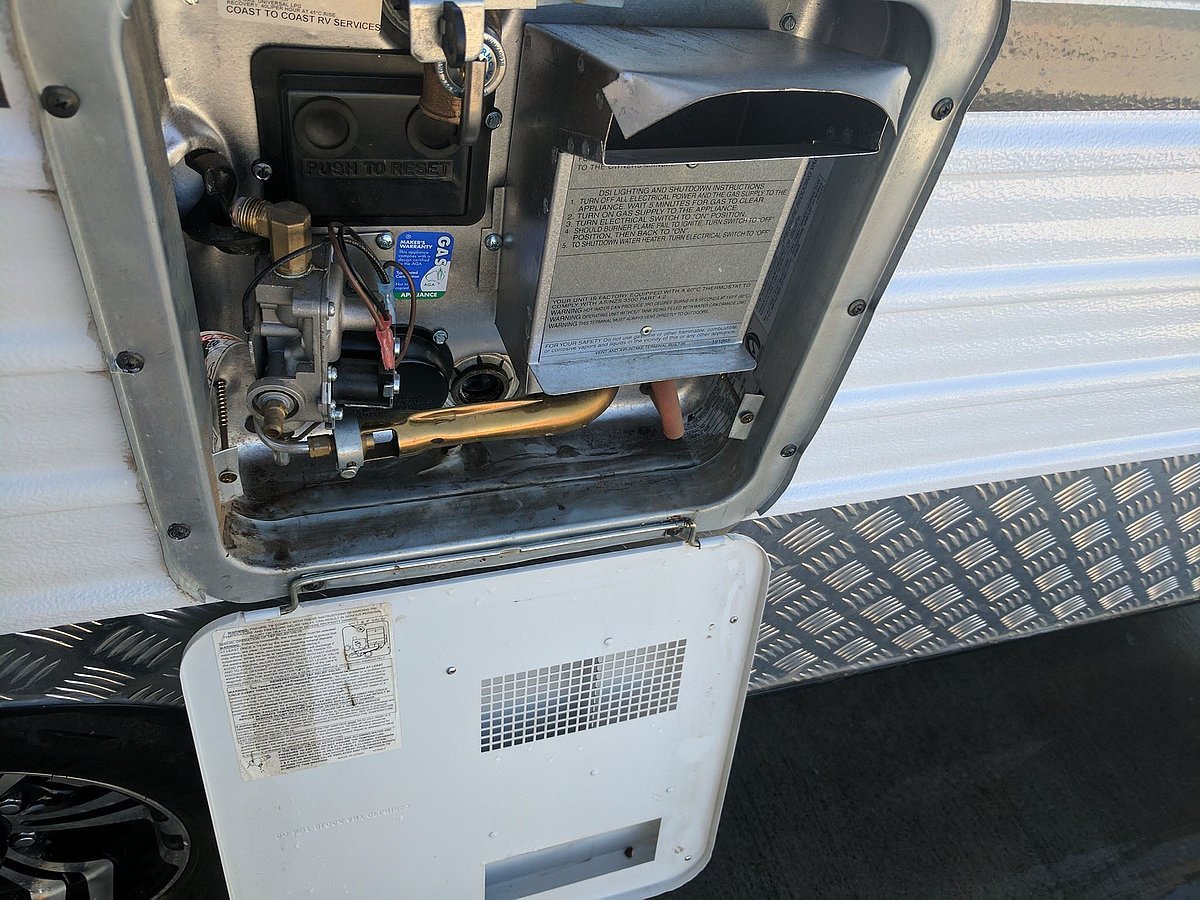
No, it is not a medical question. If you have a hot water service that has an anode rod, it should be checked at each service interval. If you are using bore water or have been travelling where water quality is not the best, the anode may need checking more often. Failure to replace an anode in time could lead to the tank rusting, splitting and ultimately rupturing. No one wants large volumes of water in their van or any water for that matter. At worst, you could be up for a new hot water service and a big water damage repair bill. Read more here
Marlon reckons his most valuable tips for if you are considering attempting a DIY repair: If it needs a licence, engage a professional. If you are not sure about anything covered in this article, engage a professional.
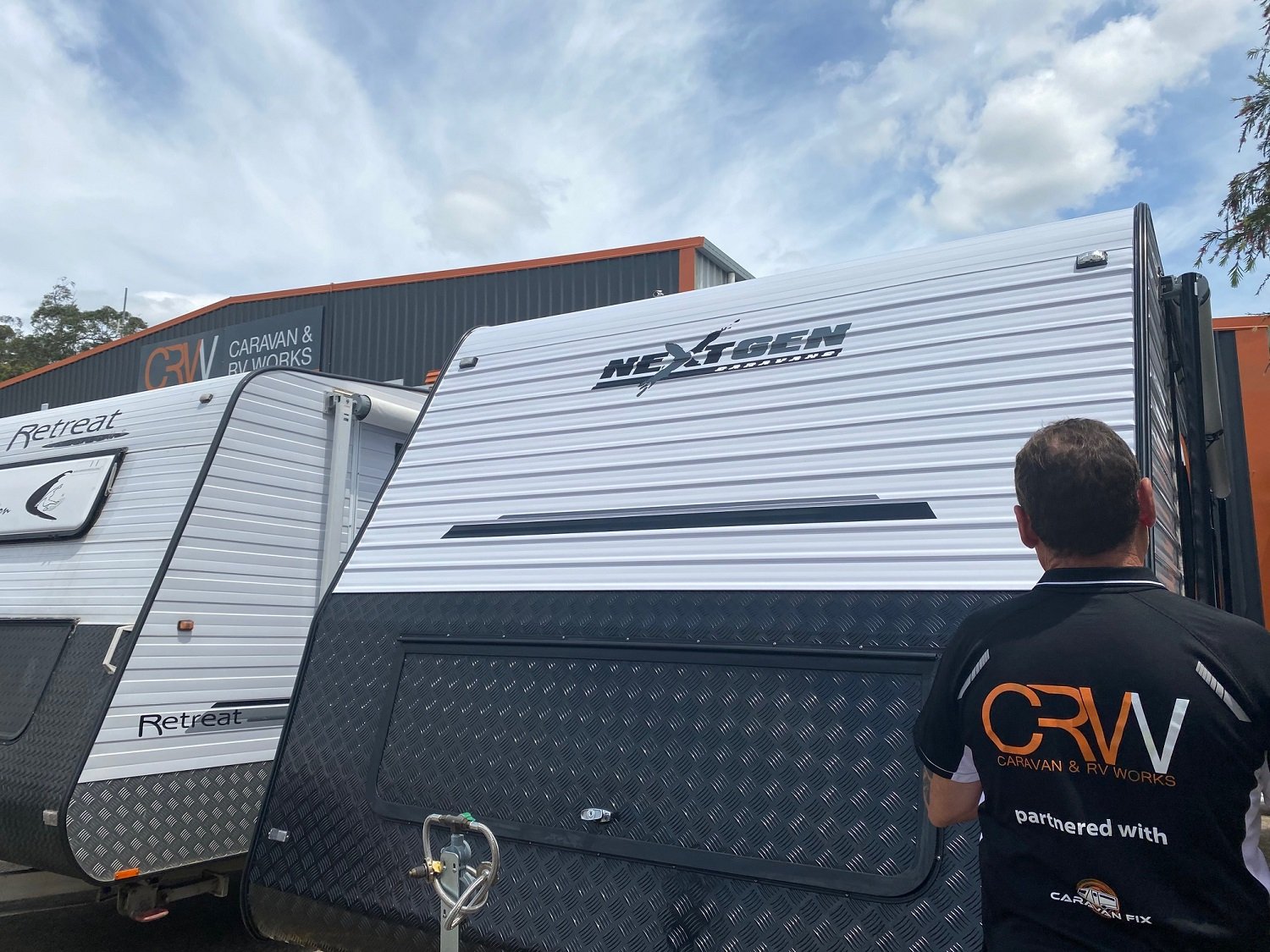
A huge thanks to the team at Caravan Fix for their help with this story. A good service centre should always want to help and offer advice for jobs you can do yourself if you’re up to it, as well as take care of the jobs that require a lot more experience and facilities. For outlets and services offered by Caravan Fix, click here for more information.